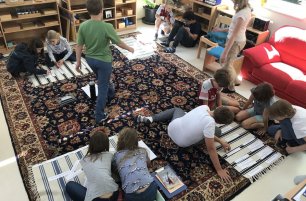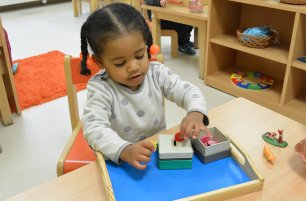Mones
Sorry, this article is only in Czech.

The Montessori Elementary classroom is a dynamic system led by carefully trained teachers to enhance the learning of the 6 to 12-year-old student by aligning with their stage of development.
Read more
“The thing that IMSP really contributed the most to me would be developing my curiosity. Just, letting me as a kid explore my own world in my own way,“
Read more
As teachers, we are often asked what special tips or tricks we use to get children to cooperate. Most often parents ask questions like “How can I get my child more interested in dressing and eating by themselves?”or “How can we make the mornings run more smoothly?” It can feel challenging when our patience is tested, but we must remember that children are learning to develop their own will and sense of obedience which is a natural process lasting until around six years of age.
Read more
Every morning, with any luck, a very enthusiastic and volume‑charged toddler and I make the 45 min…
Read more
Have you ever noticed that your child enjoys singing the same song over and over again, or wants you to repeat the same story for what feels like a million times? Dr. Montessori highlighted the importance of sensitive periods in children, which are known as windows of opportunities for children to develop skills, including movement, language and most definitely, order. A child’s need for external order is present as early as childbirth and peaks in their second year, before fading at about the age of 5. This period of development helps a child to develop a connection between themselves and the world, process information and overcome challenges.
Read more